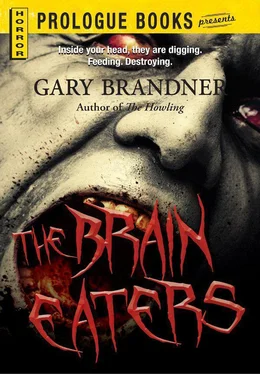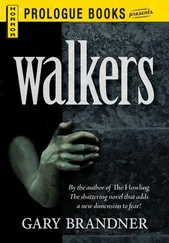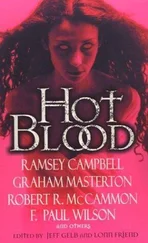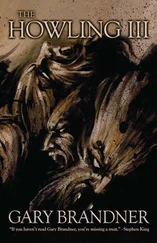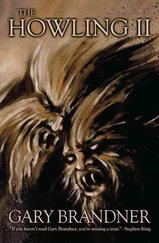“It is located in a village called Wheeler.”
The cabbie looked blank.
“That is near a larger city called Appleton.”
“Appleton? Are you crazy?”
“I am not crazy. That is the name of the city. Do you not know where it is?”
“Sure I know. This Biotron place — is that the one on TV where those doctors are trying to come up with something to stop the brain eaters?”
“That is correct. You will take me there?”
“Do you know how far that is?”
“No.”
The driver cocked his head speculatively. “How much money you got?”
“American money?”
“Hell, yes. What do you think, pesos?”
Kuryakin pulled out his worn leather wallet and carefully counted the bills inside. “I have thirty-three dollars in American bills and some coins.”
“Shit. And you want me to drive you to Appleton for that?”
“Yes, please.”
“Mister, you already owe me twenty bucks for the trip from the airport. What you got left ain’t going to get you out of town, never mind all the way to Appleton.”
Kuryakin paid the man his twenty dollars and accepted the scowl he got for not adding a tip. One day the Western workers would understand the insult of offering a man a gratuity on top of the wages he earned for merely doing his job.
There were no buses running out of Milwaukee. No trains. No public transportation of any kind. Kuryakin sat down on a deserted bus-stop bench to think. As best as he could remember, the drive from Milwaukee to the Biotron plant had taken two or three hours. While he rode as a passenger in the back seat of the car supplied by the American State Department, he had paid little attention to the route followed by the driver. However, as a product of the Russian school system, he was an excellent reader of maps. If he could obtain a map of the highway system, he was sure he could locate the town of Wheeler, and once he was there, it would not be difficult for him to find Biotron. His means of traveling there was another problem to be faced.
There were an unusual number of police and soldiers on the streets. They paid no attention to Kuryakin. He understood that they were too busy with the problem of the brain eaters to concern themselves with him. Under normal circumstances, he no doubt would have been arrested long ago and would now be in some secret police prison facing the harsh interrogation for which American police were noted. Even though he felt relatively safe, he did not wish to jeopardize his anonymity by approaching one of these men for help. He would simply have to rely on other means to get where he wanted to go.
As Kuryakin sat organizing his thoughts into a plan, a big American car jounced up over the curb and crunched its gleaming front end into a light standard. The door on the driver’s side burst open, and a man tumbled out. He wore a T-shirt with the name of a popular beer on it. His eyes bulged, and his mouth gaped in a scream. On his face the red boils worked as though there were tiny mice under the skin trying to chew their way out. Kuryakin recognized the symptoms of the brain eaters.
The man took off in an erratic run down the sidewalk, hammering his fists against the unyielding plate-glass windows as he stumbled past.
Two men in army uniforms on the opposite side of the street shouted at him. He turned in their direction, roaring out his pain and madness. He started across the street toward the uniformed men.
“Halt!”
Kuryakin heard the shout clearly on the near-deserted street. Several people peered cautiously from doorways at the commotion. From around the corner came several more men in uniform.
The stricken man continued to run at the two soldiers. His hands were stretched out in front of him, the fingers bent into claws. One of the soldiers fired his automatic rifle into the air. The man continued to charge. Both soldiers dropped to a kneeling position and fired. His body jerked, and he stumbled backward as the bullets tore into him, but he righted himself and came doggedly on for another half-dozen steps before he fell.
Hesitantly, keeping their weapons at the ready, the soldiers approached the fallen man. The others, who had been attracted by the shouts and gunfire, joined them. A few civilians came out of the buildings. They formed a cautious circle around the unmoving man on the ground.
Kuryakin was ignored in the excitement. So was the automobile the man had been driving. It still sat with its front end mashed against the light standard, the door hanging open.
Kuryakin rose from the bench and walked to the automobile. One of the headlights was smashed, but there seemed to be no disabling damage. No fluids were leaking out underneath. He got in behind the steering wheel and pulled the door shut.
He knew that maps were usually stored in a compartment on the right-hand side of the dash panel. He released the catch, and the door popped open. Inside the compartment he found a wad of the crinkly receipts given to American drivers when they purchased gasoline on credit. There was an aspirin bottle with only a few tablets left inside, a pair of sunglasses, a box of facial tissues, a can opener, a woman’s compact, a comb, a roll of breath mints, two ball-point pens, several loose keys, assorted screws, and three maps.
One of the maps detailed the streets of Milwaukee. The others were for the states of Wisconsin and Illinois. Kuryakin discarded the Illinois map and spread the other two out on the seat beside him. He found his present location by matching the street names on a sign at the intersection to the grid of the Milwaukee map. On the state map he located the village of Wheeler and plotted the route he would have to take to get there.
Out on the street none of the people gathered around the dead man paid any attention to Kuryakin or to the automobile. Damaged and abandoned cars were no longer a novelty. And no one had time to notice an oddly dressed man climbing into one.
As a scientist of some repute in his native country, Kuryakin was privileged to have access to an automobile. The solid, sensible Ilyushin he drove on the streets of Moscow was a much simpler and sturdier machine than the gaudy American vehicle, but the principle was the same.
As a driver himself, and rather proud of his ability, Kuryakin had taken every opportunity on this visit to discuss the differences between Russian and American machines with the drivers assigned to his delegation. He thought the American cars were overly padded and contained too many controls and gauges that had little to do with the machine’s operation. However, he was too diplomatic to criticize an important product of the host country.
He tried now to remember the things he had learned. The engine, he recalled, was started by a twist of the key. The keys to this vehicle, in a shiny leather case, had been left dangling from the lock on the steering post by the doomed owner. Kuryakin gave the ignition key a twist as he had seen the American drivers do.
Nothing happened.
Kuryakin frowned at the controls. He must have forgotten something.
The gear lever; that was it. The pointer had to be in a specific location to allow the key to activate the ignition. Kuryakin experimented until he found that the P position freed the key switch. The engine came to life. He glanced out onto the street, but the only activity was around the body of the car’s late owner. Very carefully he moved the lever to the R position and backed the big automobile back onto the street. He shifted to D and eased forward past the knot of people and around a corner heading toward Highway 45.
• • •
While Anton Kuryakin picked his way carefully through the cluttered streets of Milwaukee toward the highway, Eddie Gault lay curled into a tense fetal position between the damp, twisted sheets of the bed he shared with Roanne Tesla.
Читать дальше
